Don't wanna be here? Send us removal request.
Text

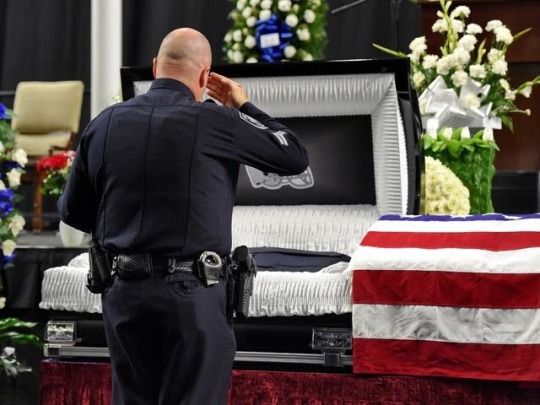
Our thoughts and prayers go out to the family and friends of the LEOS
1 note
·
View note
Text
NYPD sergeant convicted of twice raping girlfriend's daughter, 13, and forcing her to perform sex act on him at school after taking her to the father/daughter breakfast gets just THREE years in prison
#CreepCop #Flashback
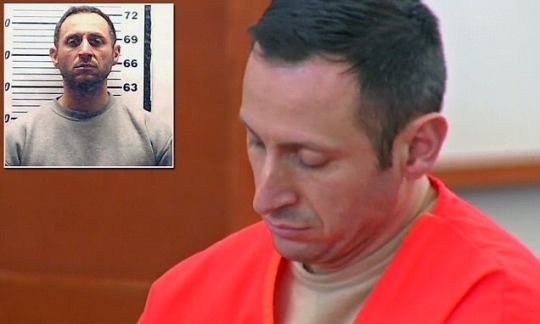
0 notes
Text
https://www.nydailynews.com/new-york/nyc-crime/ny-retired-officer-shot-suicide-20210705-krllbgmq6vcbhck4ml5unnxr6a-story.html
0 notes
Text
FEDERAL INFORMANTS ARE OFTEN PROMISED VISAS. THEY RARELY MATERIALIZE.
Instead of bad faith, a new report finds a broken system.
Trevor Aaronson
June 29 2021, 6:00 a.m.
NERVIN CORONADO CAME to the United States when he was 12 years old, but he never became a U.S. citizen. As an adult, in 2009, Coronado was charged with participating in a mortgage fraud scheme.
He immediately cut a deal with the Justice Department: He’d provide information about others involved in the scheme, including two lawyers and a former New York State Senate candidate, in exchange for what’s known as an S visa — a special visa, commonly referred to as a “snitch visa,” for noncitizen informants and cooperating witnesses. In fact, Coronado’s agreement with the government specifically stated that if he fulfilled his obligations, the Justice Department would recommend that he receive an S visa to stay in the United States.
Coronado held up his end of the bargain, providing information that led to the arrest and conviction of nine people involved in the mortgage fraud scheme. He then asked the government to give him the S visa he’d been promised. The Justice Department repeatedly declined, pointing to the fact that Coronado could not articulate “verifiable safety concerns” if he returned to the Dominican Republic, his native country.
An immigration judge ordered Coronado’s removal in 2016, and he was deported three years later, following a series of unsuccessful appeals. It was a raw deal for Coronado. The U.S. government had effectively used him to prosecute mortgage fraudsters, and then, when he was no longer useful, they had cast him aside.
The Snitch Visa
Congress intended the S visa — established as part of the Violent Crime Control and Law Enforcement Act of 1994, the “Crime Bill” drafted by then-Sen. Joe Biden — to be a powerful tool for federal law enforcement agencies to gain cooperation from noncitizen informants in investigations of major crimes and terrorism. The law permits the government to issue 200 criminal- and 50 terrorism-related S visas every year. The S visa is designed to work in a two-part process: The informant first gains a three-year temporary status, and if they fulfill all obligations related to the government’s case, immigration officials will grant permanent residency.
In years following the 9/11 attacks, as the FBI amassed an unprecedented 15,000 informants, the S visa became a popular recruiting tool, often dangled in front of Muslim immigrants whose help the FBI sought in counterterrorism investigations.
In November 2001, then-U.S. Attorney John Ashcroft held a press briefing to publicize the S visa program, which Ashcroft branded the “Responsible Cooperators Program,” as a way for foreign nationals who provide information about terrorism cases to stay in the United States. President George W. Bush also promoted the program in 2001, telling a conference of U.S. attorneys at time: “We’re saying, ‘Welcome to America. You’ve come to our country. Why don’t you help make it safe? As you enjoy the freedoms of our country, help us protect those freedoms.’”
Over the last two decades, the FBI has often used visas to entice cooperation from would-be informants — something government documents describe as an “immigration relief dangle.” In fact, the FBI’s Confidential Human Source Policy Guide — a nearly 200-page classified manual for how FBI agents should recruit and handle informants, which was published by The Intercept in 2017 — devotes an entire chapter to using immigration-related rewards to recruit informants.

0 notes
Text
Police officers are at a higher risk of suicide than any other profession. In fact, suicide is so prevalent in the profession that the number of police officers who died by suicide is more than triple that of officers who were fatally injured in the line of duty.
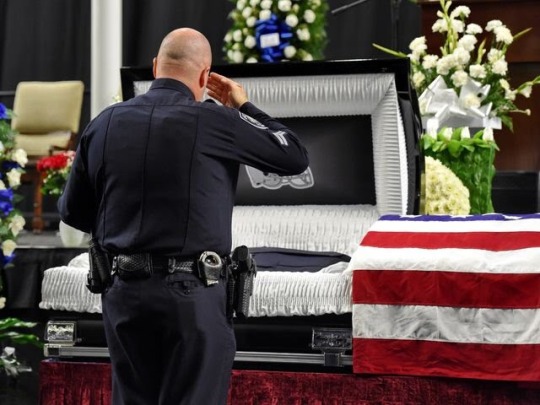
0 notes
Text
Lawsuit portrays a culture of rape, sodomy and sexual harassment at the NYPD
By Tina Moore and Gabrielle Fonrouge
June 15, 2021 | 8:10pm
The NYPD is probing a former cop's claims that her superiors did nothing amid complaints that she was raped and beaten by her co-workers in a Harlem precinct.
A former NYPD cop was repeatedly raped, sodomized and mentally tormented by a cadre of officers over the course of five years but when her case was brought to the Manhattan District Attorney’s Office, it declined to prosecute, an explosive federal lawsuit filed Tuesday claims.
Maria Mendez, who last worked in the 32nd Precinct and resigned from the department in January 2019 after a 14-year career, said she was raped by two officers, one detective and one FDNY firefighter and was regularly forced to ingest oxycodone, ecstasy and alcohol, her Manhattan federal lawsuit claims.
Mendez said the “incalculable” amount of rapes she endured were so bad, she suffered “physical deformities to her vagina and anus requiring surgical repair” and she was left suicidal and suffering from anxiety, depression and post-traumatic stress disorder, the lawsuit alleges.
Mendez further claims she was forced to buy drugs from FDNY Firefighter Evan Santana, who also raped her, after he obtained opioids and other contraband by stealing it from the homes of dead people.
Lt. Filastin Srour
The suit alleges that Maria Mendez was called a “slut” by Lt. Filastin Srour, pictured, when Mendez told her about the abuse she was enduring.
The suit paints a vivid picture of sexual abuse and harassment that ran rampant at the precinct where Mendez was not only regularly raped but was subjected to sexualized comments and requests by lieutenants and sergeants — and, eventually, deaf ears when she tried to report the crimes.
Lt. Julio Calle allegedly asked Mendez to “spoon feed him in his bed because she’s Dominican” and also asked to suck her toes, while Sgt. Alfred Gallicchio is accused of taking pictures of a sergeant while she pumped breast milk — and then daring a subordinate to steal the milk and drink it, which he did.
Gallicchio, a union delegate, is also accused of asking Mendez to perform threesomes and making grotesque comments like “Let me drink the p—y juice” and “I’ll lick your p—y all day” and other remarks about having sex with her.
When Mendez confided in Lt. Filastin Srour, a woman, about the constant rapes and abuse she was enduring, Srour allegedly failed to take the necessary action she was required to as a supervisor. Instead, she called Mendez a “slut” and threatened that if she “didn’t stop making false allegations against good officers … she’d be forced to take action against her,” the suit claims.
The NYPD is probing a former cop's claims that her superiors did nothing amid complaints that she was raped and beaten by her co-workers in a Harlem precinct over a period of years
These items were presented as evidence in the suit.
Further, videos of Mendez being raped and assaulted were regularly shared across the department in a group chat, where high-ranking officers like Deputy Chief Michael Baker and Capt. Neil Zuber allegedly viewed the content but did nothing about it, the suit claims.
Mendez said the abuse started with her former partner, Officer Ryan Marrero, in 2014 when he slipped her two oxycodone pills and started raping and sodomizing her on a regular basis, the suit claims.
Once photos and videos of the rapes made the rounds in the department, other cops, including Officer Jimmy Gutierres and Detective Michael Ganz, demanded sex acts from her and then raped her, the suit states.
During one occasion, Marrero forced her to attend an NYPD Christmas party with him and said if she didn’t, he’d tell her husband about the drugs and nude pictures he forced her to take.
Following the party, Marrero allegedly grabbed her by the throat, shoved a silver handgun in her mouth and ordered her into the back seat of his car, where he proceeded to rape her vaginally, anally and orally.
When she told him to stop, Marrero allegedly told her to “shut the f–k up” and that if she “doesn’t stop resisting,” he would take pictures of her and send them to her husband. He then called a fellow officer, Peter Montalbano, and told him to join him “so he can have some fun too with a Dominican slut like her,” the suit claims.
The NYPD is probing a former cop's claims that her superiors did nothing amid complaints that she was raped and beaten by her co-workers in a Harlem precinct over a period of years
On numerous occasions, Ryan Marrero “brutally punched,” “kicked” and “strangled” Maria Mendez, the suit claims.
Following the rape, Mendez said in her suit, she was afraid to tell a supervisor because “who would believe that a trained police officer could be sexually assaulted much less by another police officer,” and any time she tried to report the abuse afterward, superiors did nothing to help.
Mendez said Marrero would repeatedly rape her on a series of public streets all across Harlem, close to NYPD Headquarters and Manhattan Criminal Court, when they were there for hearings.
She further claims the rapes happened in hotels, department vehicles, the police officers lounge, the female bathroom and locker room and while out on emergency calls, including one where Marrero allegedly forced her to the edge of a roof and threatened to throw her off.
On numerous occasions, Marrero “brutally punched,” “kicked” and “strangled” Mendez and forced his “fist” inside her anus and vagina, causing her a series of injuries, including some that required medical attention.
He also subjected his department canine to abuse by hitting him in front of Mendez as a form of intimidation and regularly talked about how he liked having sex with unconscious women because they don’t fight back and showed her naked pictures of teenage girls he claimed to have had sex with.
In July 2019, Mendez was interviewed by the NYPD’s Internal Affairs Bureau and members of the Manhattan District Attorney’s Sex Crimes Unit and provided reams of evidence to back up her claims.
The evidence included mobile devices, 20 activity logs and more than 100 pairs of “soiled” underwear and a DNA sample — but a year later, she was informed the Manhattan DA wouldn’t be prosecuting because the office couldn’t “prove beyond a reasonable doubt that a crime has occurred.”
To this date, Mendez doesn’t know about the status of the IAB probe.
The NYPD didn’t return a request for comment and the city’s Law Department, which handles such lawsuits, said it won’t be commenting “before all the facts were in” and until it’s “had a chance to review the suit.”
The Manhattan DA’s Office also did not immediately return a request for comment.


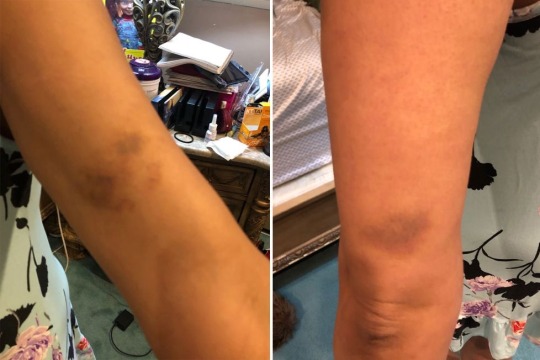
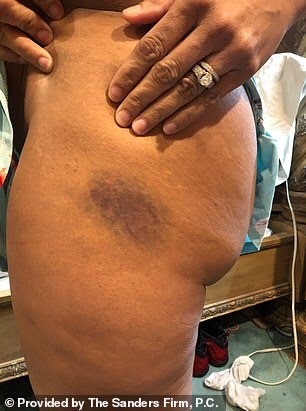

0 notes
Text
GRUNDY CENTER, Iowa —
New information about the man accused of killing an Iowa State Patrol officer shows that he ran for Grundy County Sheriff last fall.
This weekend, authorities announced the arrest of Michael Lang after they say he shot and killed Sgt. Jim Smith during a standoff on Friday.
According to Grundy County primary election results from June 2020, Lang won the Democratic ticket for Grundy County Sheriff and received 517 votes.
Documents show that he lost during the fall's general election against Republican Kirk Dolleslager. During the general election, Lang received 22.3% of the vote while Dolleslager received 77.1%.
Lang has an extensive history of run-ins with law enforcement with a frequent common denominator: alcohol.
Court records reveal multiple public intoxication charges and a 2nd offense OWI conviction. He was also accused of second-degree burglary in 1999, a charge later dropped and reduced to operating a vehicle without consent.

Lang's most recent charge came on April 1, when he was accused of trespassing at a Grundy Center bar, according to court documents.
A man who said he is a friend of Lang's spoke to KCCI Sunday on the condition that he remains anonymous. He said the news of the shooting shocked him and left him "torn."
"When I found out this morning, I was so mind-blown," he said. "Like, what the hell happened?"
The man said Lang had issues with drinking, but said "when (Lang) is sober, he is a really, really nice sweet guy."
"(He'd) do anything in the world for you," he said, saying the serious crime Lang is accused of is out-of-character.
"Something didn't click right or something and (he) didn't get help that he needed or something," he said. "I don't know. But the Mike I know would never do that. Never in a million years."
Lang's friend said first and foremost, his heart is with the family of Sgt. Jim Smith. He said Lang "screwed up" and "needs to pay his price for what he's done."
"But I don't want people to think he's a monster, because he is not," he said.
0 notes
Text
I’m a black gay male who doesn’t really bother anyone. At about 6:50 pm April 2nd I was riding my bike home when 7 NYPD officers stopped their marked 44th precinct van to intimidate me about riding my bike on a sidewalk. They surrounded me in a very aggressive stance. See their pictures. This isn’t really about riding a bike on a sidewalk, it’s because I’m reposting their corruption in these Facebook groups.

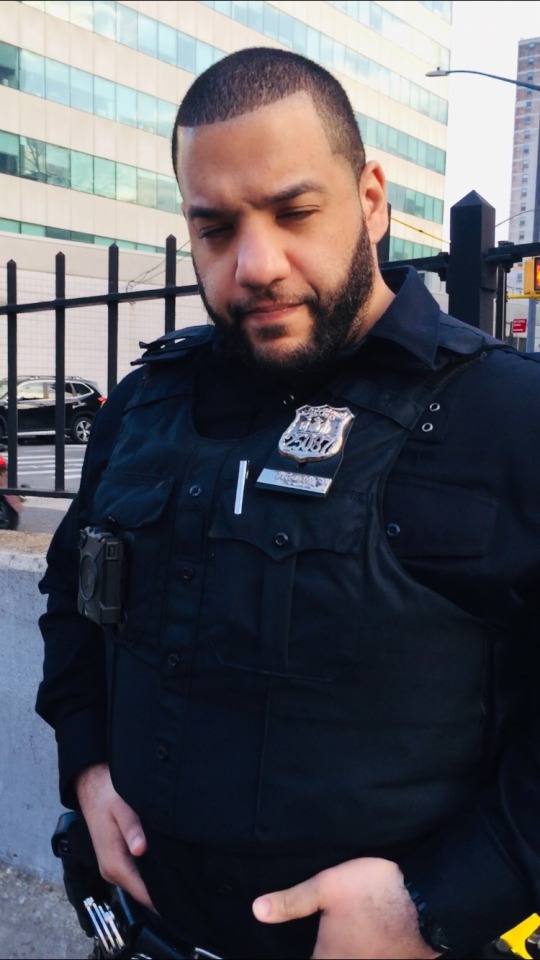
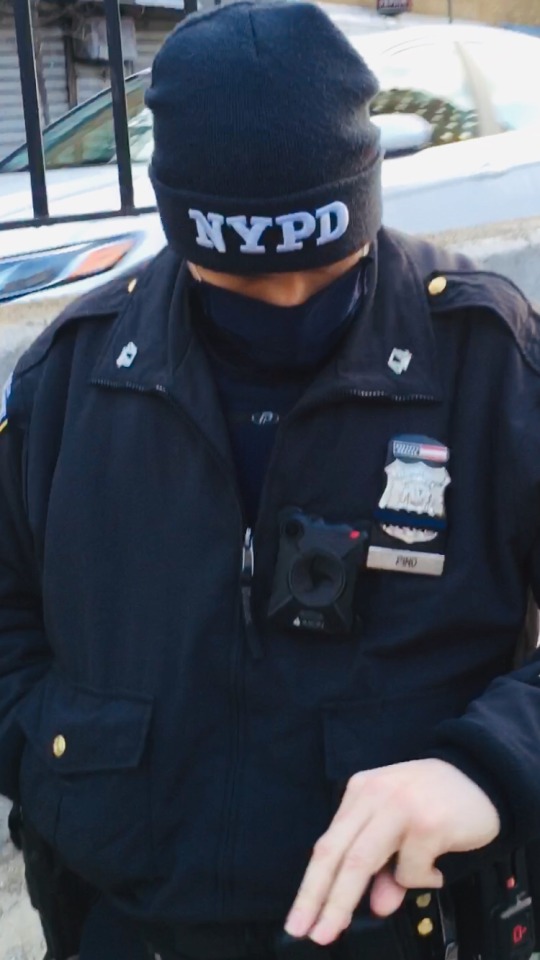
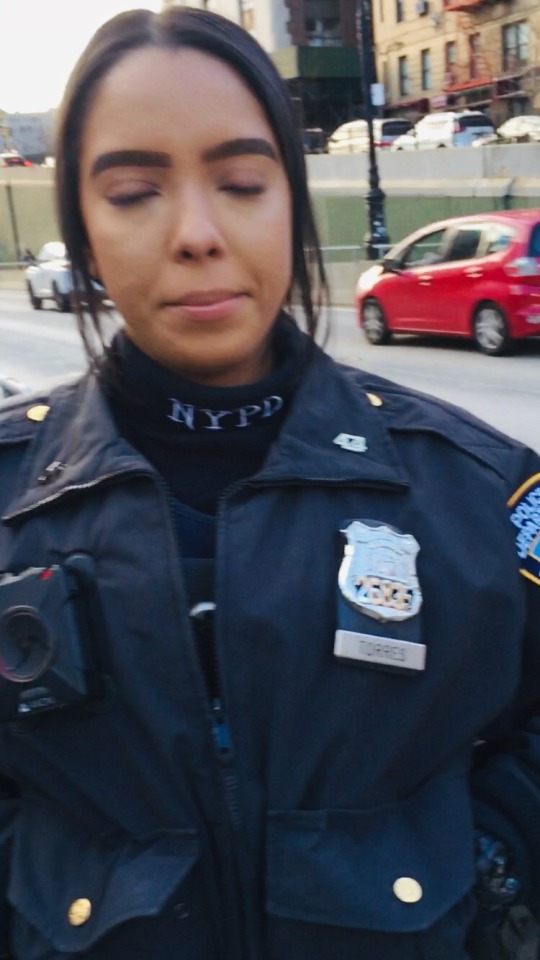


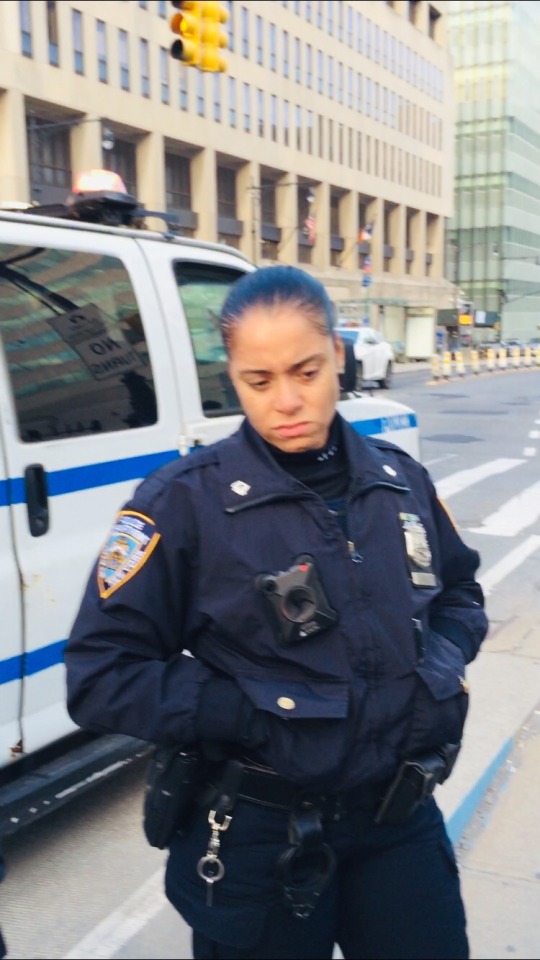
0 notes
Text
Here are several tips to help you cope with panic attacks while driving:
Use safe distractions. ...
Engage your senses. ...
Cool off. ...
Breathe. ...
Focus on your symptoms, not the thoughts behind them. ...
Keep driving, if you can safely continue.

0 notes
Text
Crazy is when you gotta get in a car and drive in circles around someone, hoping they’ll go crazy. When in fact, you the driver start to deteriorate mentally due to repetition of said act.
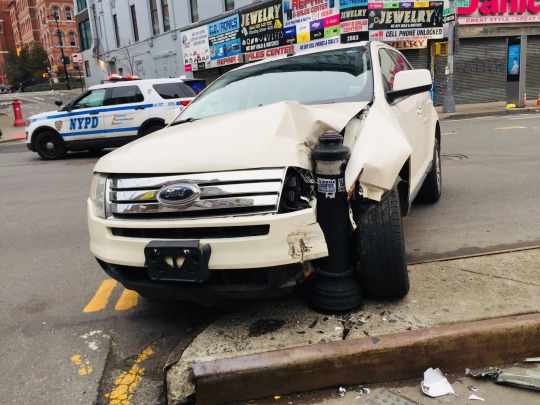
0 notes



